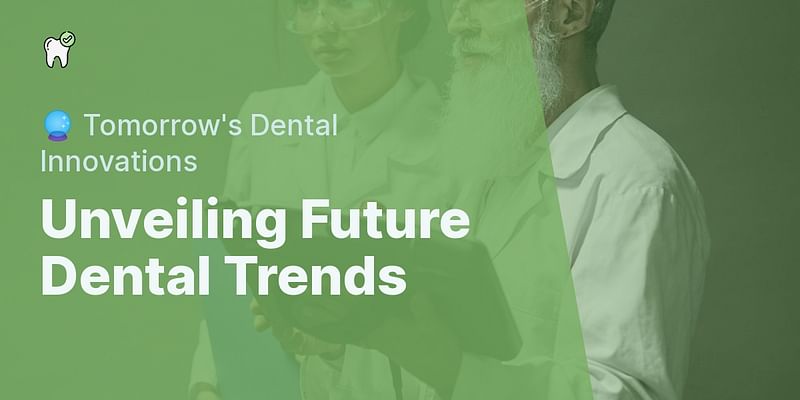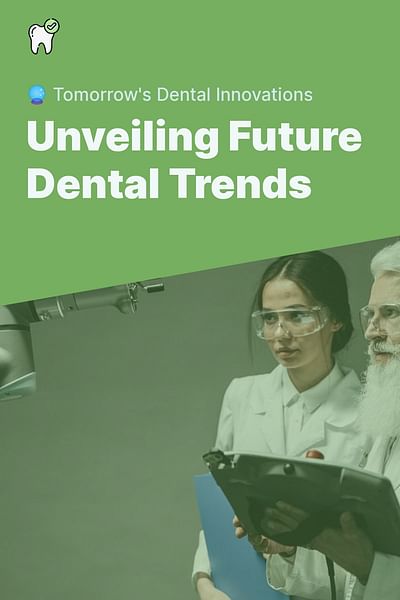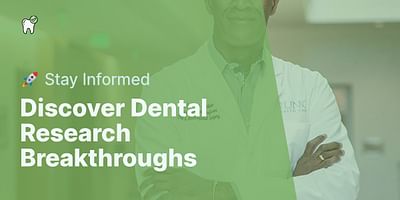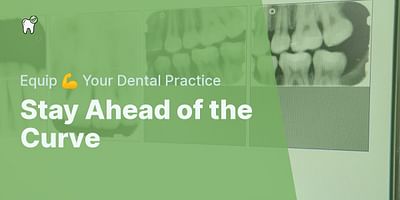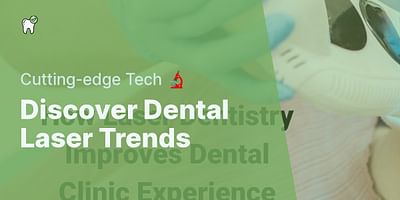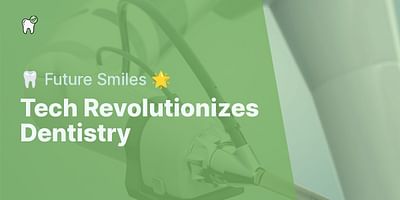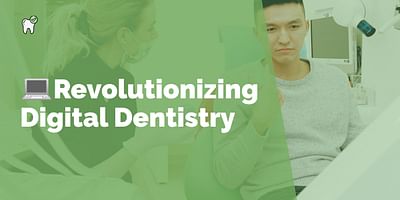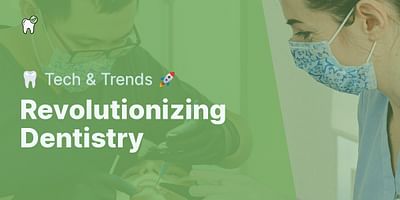Dr. Sylvia Green is an experienced dentist with a decade of professional practice under her belt. Her commitment lies in guiding her patients toward excellent oral health, with a particular emphasis on the critical role of preventative measures. Outside of her medical pursuits, Dr. Green is an avid hiker and culinary enthusiast, always keen on discovering and experimenting with new recipes.
Future Trends in the Dental Profession
As a dentist with over 10 years of experience, I have witnessed firsthand the rapid advancements and innovations in the dental field. The future of dentistry is exciting, with emerging technologies and research paving the way for improved patient care and enhanced treatment options. Here are some of the key trends that I believe will shape the future of the dental profession:
1. Digital Dentistry
Digital dentistry is revolutionizing the way dental professionals diagnose, plan, and treat patients. With the use of advanced imaging techniques such as cone beam computed tomography (CBCT) and intraoral scanners, dentists can obtain highly accurate 3D images of the oral cavity. This enables more precise treatment planning, improved patient outcomes, and reduced chair time.
2. Minimally Invasive Dentistry
Gone are the days of invasive and painful dental procedures. Minimally invasive dentistry focuses on preserving as much natural tooth structure as possible while still achieving optimal oral health. This approach involves the use of advanced materials and techniques, such as laser dentistry and air abrasion, to treat dental conditions with minimal discomfort and faster healing times.
3. Tele-dentistry
Tele-dentistry is a game-changer, especially for patients in remote areas or those with limited access to dental care. This technology allows dentists to remotely diagnose and treat patients using video conferencing and digital imaging. It not only improves access to care but also reduces healthcare costs and enhances patient convenience.
4. Personalized Treatment Plans
Advancements in genetic testing and personalized medicine are making their way into dentistry. Dentists can now analyze a patient's genetic profile to identify their susceptibility to certain oral diseases and tailor treatment plans accordingly. This personalized approach ensures more effective and targeted treatments, leading to better oral health outcomes.
5. Dental Implant Innovations
Dental implants have become the gold standard for replacing missing teeth, and ongoing research is focused on improving their longevity and success rates. Innovations such as 3D-printed implants, implant materials with enhanced biocompatibility, and advanced implant placement techniques are being developed to provide patients with more durable and natural-looking tooth replacements.
6. Integration of Artificial Intelligence
Artificial intelligence (AI) is making its way into dentistry, assisting dentists in diagnosing and treatment planning. AI algorithms can analyze large amounts of patient data, including medical history, radiographs, and clinical notes, to provide dentists with valuable insights and recommendations. This integration of AI technology enhances diagnostic accuracy and improves treatment outcomes.
These are just a few of the many future trends that will shape the dental profession. As a dentist, it is crucial to stay updated with the latest advancements and embrace these innovations to provide the best possible care to our patients. The future of dentistry is bright, and I am excited to be a part of this ever-evolving field.

